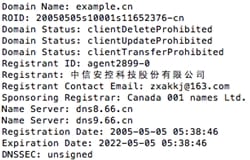UCLDH5: The First Susan Hockey Lecture in Digital Humanities
By Sarah Davenport, on 25 February 2015
 The UCL Centre for Digital Humanities was founded in 2010, and to celebrate the achievements of the centre over the last five years we are launching a named lecture series, The Susan Hockey Lecture in Digital Humanities. We are especially pleased to announce that Professor Susan Hockey will be giving the inaugural lecture.
The UCL Centre for Digital Humanities was founded in 2010, and to celebrate the achievements of the centre over the last five years we are launching a named lecture series, The Susan Hockey Lecture in Digital Humanities. We are especially pleased to announce that Professor Susan Hockey will be giving the inaugural lecture.
Digital Humanities: Perspectives on Past, Present and Future
Wednesday 27 May, 6pm
Sir Ambrose Fleming Lecture Theare, Roberts Building, UCL
In our first installment of the series, Professor Susan Hockey discusses the trajectory of digital humanities from its many years on the fringes to its current position at the centre of the humanities scholarly arena, and its future challenges. Today, conferences, courses and publications in digital humanities abound, and jobs are advertised almost every week. The advent of the World Wide Web shifted emphasis from analytical software to communication and publication tools bringing humanities resources to a much wider audience in classrooms and in the home. The groundwork for many of these new ways of working is in place now. Some time in the future, humanities information sources will be mainly digital. What are the implications of a much broader user community for these resources, and for libraries and archives, the traditional custodians of humanities information sources? How can research in digital humanities contribute to future developments? And what should our students learn in order to build successfully on what has already been achieved?
All welcome, the lecture will be followed by a drinks reception in the Roberts Foyer. Please note that registration is required.
 Close
Close




